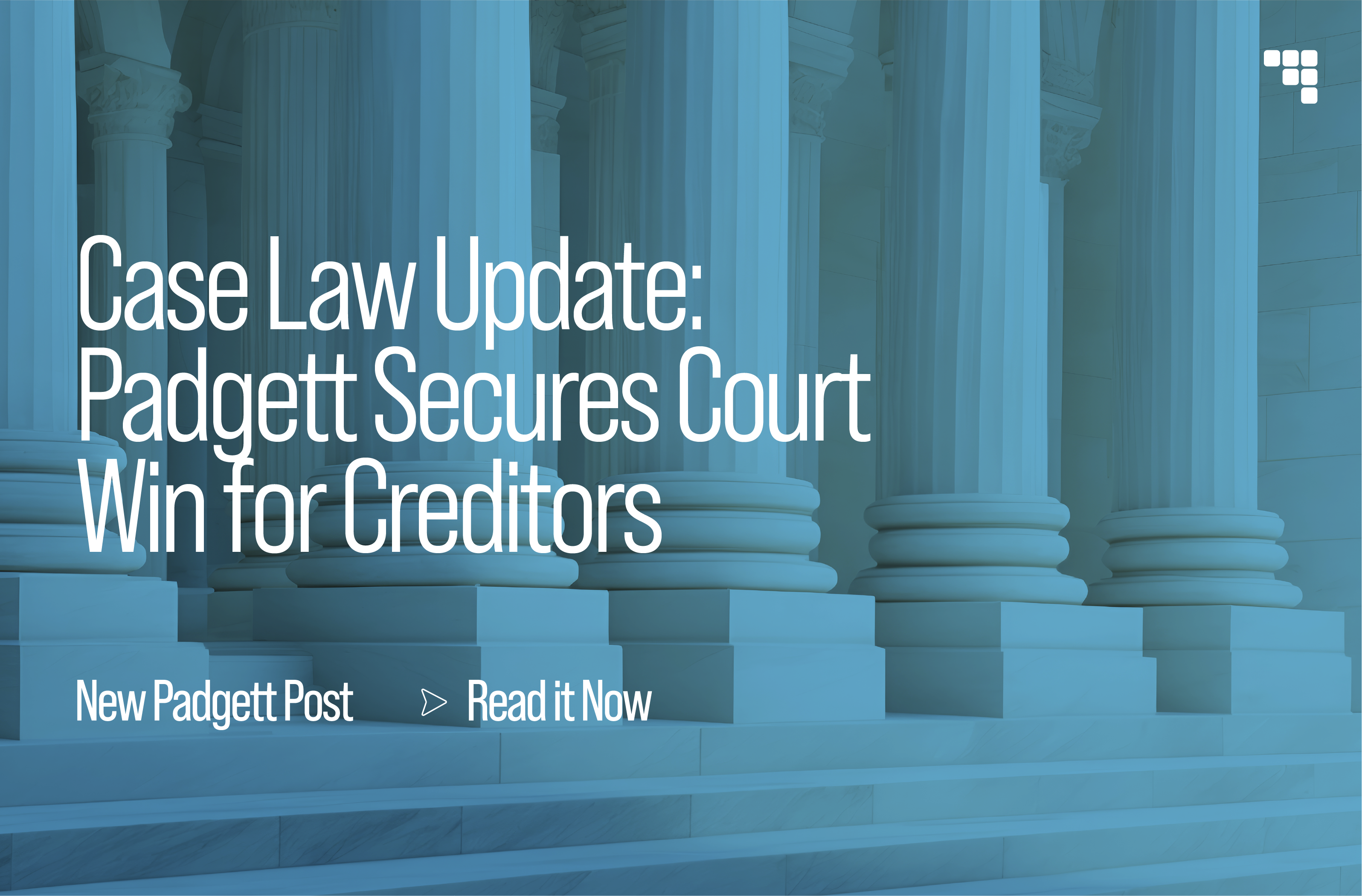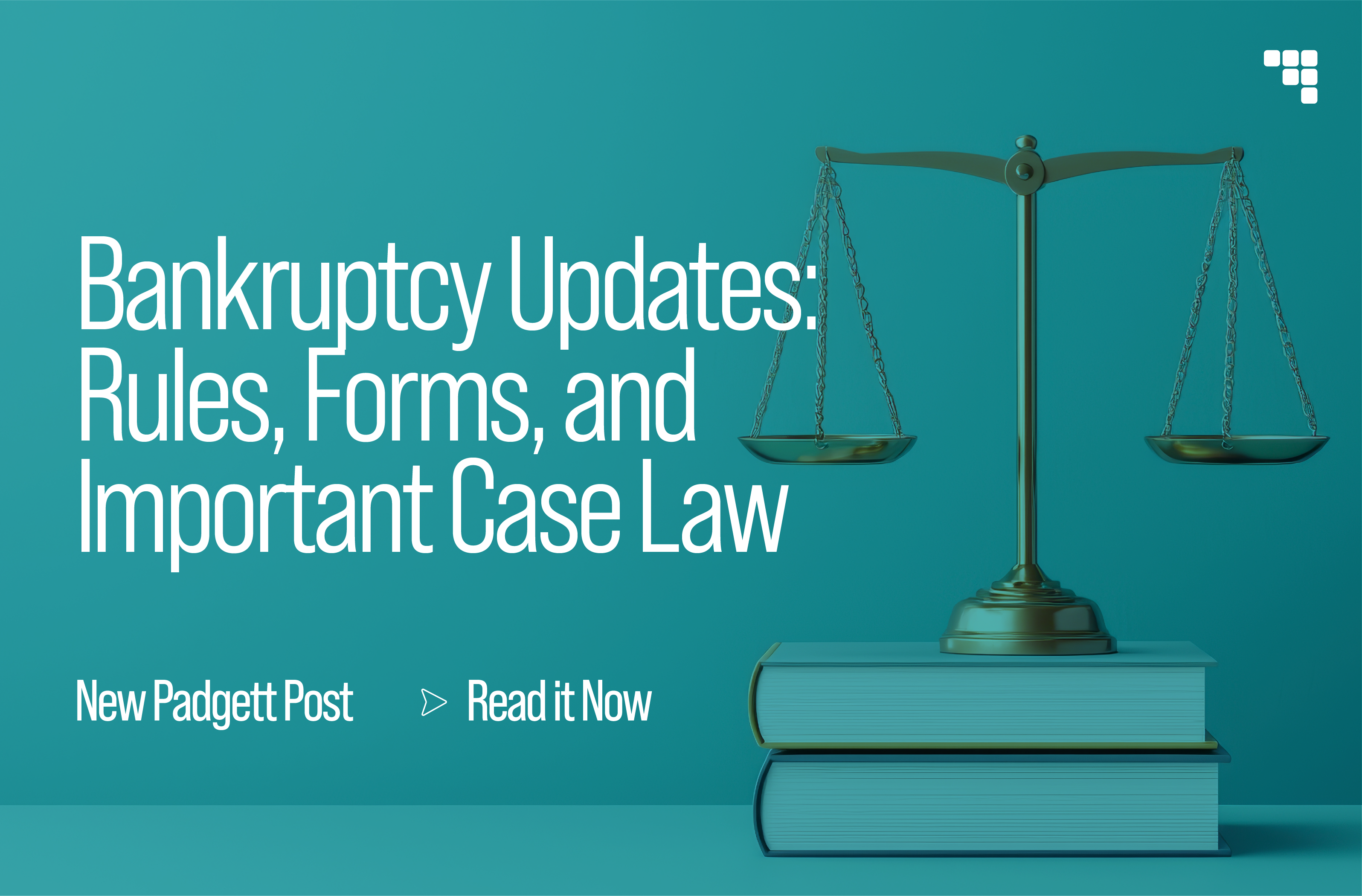3 min read
The Nuances of Notice: A Florida Court Clarifies
A Florida Bankruptcy Court clarifies the notice requirements under Rule 3002 On April 10, 2025, the United States Bankruptcy Court for the Southern...
Navigate our key practices or use the Contact Padgett page to learn about a specific state of service.
2 min read
Seth Greenhill, Esq.
:
Updated on June 19, 2025

PLG, via its attorney Seth J. Greenhill, Esq., sustained a significant victory for its client in bankruptcy court. On August 3, 2023, the Court issued its published opinion, In re Gilbert, 2023 Bankr. LEXIS 1952, whereby the Court correctly found that the Debtor was unable to use §1329 to modify a plan to strip a junior lien when plan payments were completed; and (2) the Debtor could not use §105(a) to vacate a confirmation order nearly seven years after the order was entered. It is worth noting that PLG took an aggressive approach by taking the Debtor’s deposition (i.e. Rule 2004 Examination) in order to lock in her testimony and show that she knew about the lien, yet failed to include it. This strategy, which Attorney Greenhill has successful deployed in past litigation, proved useful in this case and was, ultimately, advantageous to the Client in that it secured pivotal testimony later used by Creditors’ counsel.
As a junior lien holder, PLG’s client (“Creditor”) did not receive notification of the bankruptcy until nearly seven years after the bankruptcy was filed. This was due to the Debtor’s inadvertence and failure to list Creditor (the Debtor admitted to this several times during her deposition). Nonetheless, Creditor did not receive notice of the bankruptcy until the Debtor sought to modify the plan to strip creditor’s lien. PLG timely objected by arguing that: (1) The Debtor is unable to retroactively reclassify the status of a claim; and (2) that §1329 does not permit modifications when the plan has already been completed.
Subsequently thereafter, the Debtor filed a Motion to Vacate the Confirmation Order based on §105(a). The Debtor argued that the creditor should not benefit from the Debtor’s mistake and oversight. PLG opposed by arguing that §1330 of the code does not permit the court to vacate a confirmation order unless the order was procured by fraud and the motion filed within 180 days. Debtor countered by arguing that the catchall provision of Federal Rule 60(b)(6) provides for such relief.
In denying the Motion to Modify, the Court correctly found that modification is not permitted since the Debtor is not seeking to modify to increase or decrease the amount of payments on claims of a particular class, to extend or reduce the time for such payments, to alter the amount of distribution to a creditor whose claim is provided for by the Plan, or to reduce the amounts paid under the Plan to purchase health insurance.
By the same token, the Court sided with Creditor in denying the Motion to Vacate, by finding that Rule 9024 specifically states that Rule 60(b) does not apply to revocation of a confirmation order. Rather, revocation of a confirmation order must be filed only within the time allowed by §1144, §1230, or §1330. In other words, fraud is the only ground by which to revoke a confirmation order, and the motion must be filed within 180 days from the entry of the confirmation order.
Lastly, the Court reinforced the fact that §105(a) does not allow the bankruptcy court to override explicit mandates of other sections of the Bankruptcy Code.
This post was originally published on August 9, 2023.

3 min read
A Florida Bankruptcy Court clarifies the notice requirements under Rule 3002 On April 10, 2025, the United States Bankruptcy Court for the Southern...

2 min read
Effective December 1, 2025, a few changes to FRBP 3002.1 which impact Creditors will go into effect. The primary focus of the changes this year is to...

1 min read
Background: Effective December 1, 2025, the District of Maryland updated its Local Bankruptcy Rules related to Proofs of Claim (POCs). LBR 3002-2 has...